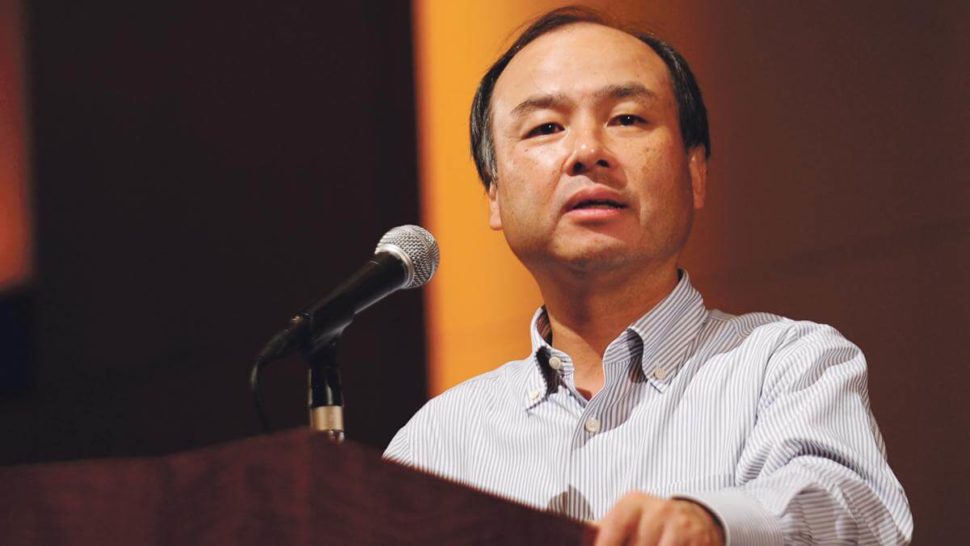The singularity will be here sooner than we realize. How do we use rapidly developing tech as a force for good in our society?
Masayoshi Son, the chairman of SoftBank, recently gave a talk at the Mobile World Congress trade show in Barcelona.
Son, a billionaire businessman and tech mogul, spoke about the billions in venture capital money that he has invested in acquiring ARM Holdings, a tech company that makes chips for smartphones, cars, and other IoT devices.
Why Does Son Spend so Much Money?
“Why do I spend so much money?” he rhetorically asked the audience before detailing his belief in the approaching reality off the singularity as the reason for all of his investments.
The singularity happens after human and machine merge to the point that machine intelligence surpasses human intelligence. According to Son, it will be here sooner than people realize.
Son’s original guess for singularity? 2018, give or take a couple of years. This seems rather sudden, but, as Son mused to his audience, one day soon “We will be less than our shoes.”
“We Will be less than our shoes,” Masayoshi SOn
He explained how in only a few more years, the average shoe will have more chip intelligence than the average human. Making the case for the singularity, he argued that the average human IQ is 100, which is just a drop in the bucket compared to the 10,000 IQ potential for machines.
Is the singularity inevitable or is it happening because we are investing billions of dollars to realize it as a future for humanity? Speaking about ARM, Son noted that “they run 99% of smartphones . . . ARM will ship a trillion IoT chips in the next decade.”
As the controller of Sprint, he noted that they “will have a trillion customers” to connect all that.”
Soon, our Tools Will Be Smarter Than us
Technology is a tool, and how useful it is depends on how we use it. With that in mind, Son does mention security as a concern for the future.
A study from Oxford University listed some of the 12 greatest risks to humans kind. Among catastrophic events like the Yellowstone super volcano erupting and a global pandemic was artificial intelligence.

“Artificial intelligence is one of those twelve crises,” Son explained, “but it can be a solution for the other eleven crises.”
According to Son, the potential benefits of AI outweigh the risks, and he trusts that companies and tech leaders will work together to keep hacking and cyber attacks at bay.
We live in a world where anything can be hacked from anywhere, and that threat grows as more connect to the Internet of Things.
#MasayoshiSon says #AI can solve the world's crises.Click To TweetSon’s vision of a tech community that works together for security is almost more implausible than the thought of the singularity occurring next year. Short term gains and economic competition are ingrained in our culture, and it would have to take a large cultural shift for this to not be the case. Tech companies will have to work together to ensure security, but also develop a new plan that emphasizes a long-term vision, one that has boundaries to which they can all agree.



















It is odd that we look at AI almost as a natural movement and direction. Let us never forget it is humans that set the ethical, accountability and investment agenda with technology. So, when facing concerns, fears and social impact it is better not to blame AI alone but the very priority set by those that invest and regulate it.
On a business and personal level I am all for AI yet see the fast buck being used as the priority. Why not create focused social benefit programs through academic and private influenced agendas.
https://uploads.disquscdn.com/images/609a170dc24ade1db1f3c0d781076e41b24e2e4fcec3f583c99b19e5a47eb1c2.jpg
Well said. Regarding the “fast buck,” what do you think needs to change for social benefit programs to be a priority? I’d really like to know your input there.
Although I am not for too much regulation or governmental impact to daily lives, there are some things in life that regulation and the state ought to take a framework leading role. So, incentives via grants, tax breaks etc can be provided in specific areas for instance education, health, start up efficiency , sustainability for environmental and ethical supply chains etc etc that would be set as a priority over social media or game or pure finance tools. We seem to chase money as a priority instead of improving the conditions of the planet and fellow humans. This sounds little “pie in the sky” but aim high and pursue moral principles!
What are your thoughts?
I agree. To me, capitalism needs regulation. Without a drastic change in economic structure I think the “fast buck” is always a huge incentive.